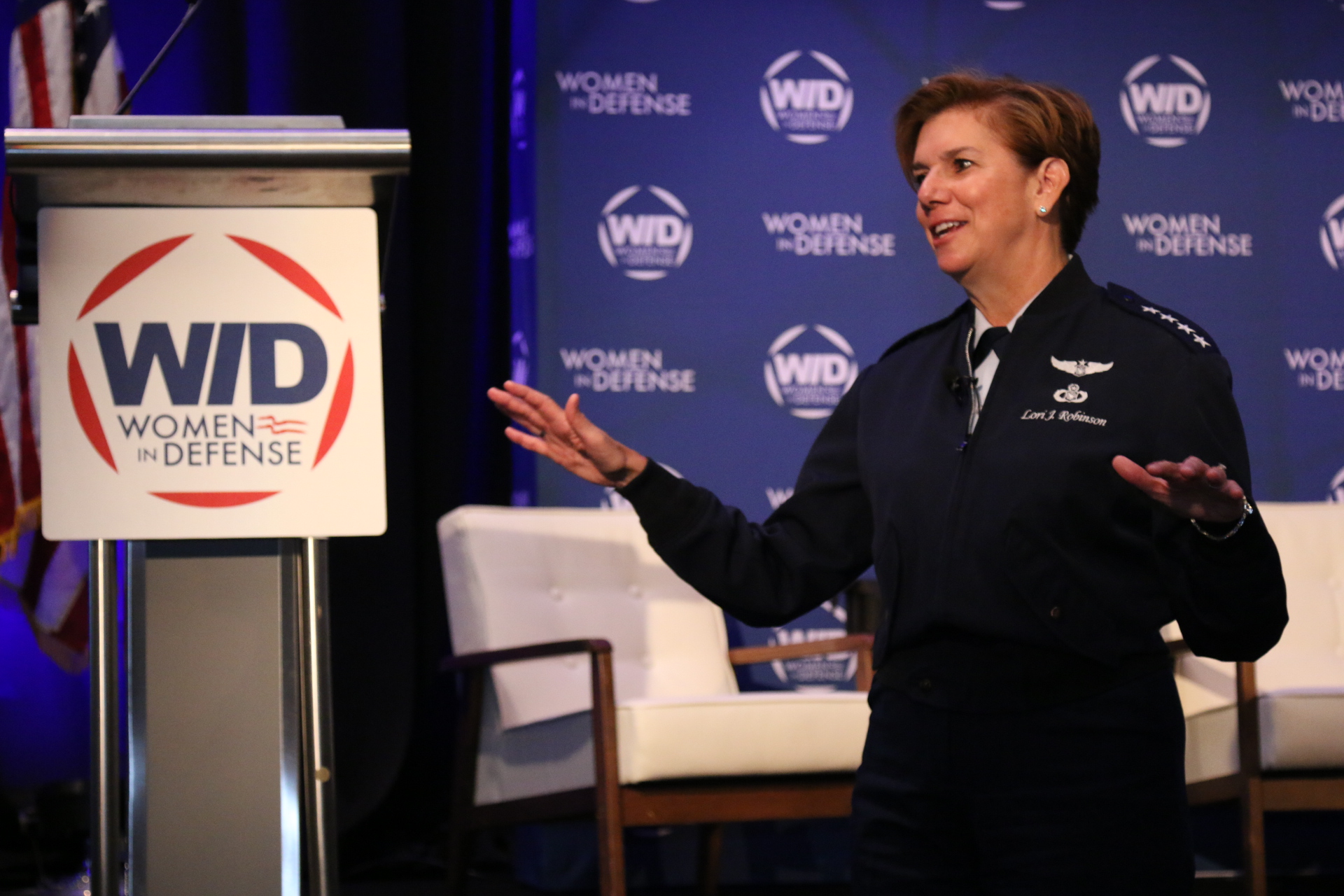Gen. Lori Robinson, commander of US Northern Command and the North American Aerospace Defense Command (NORAD), speaks at the 2017 Women in Defense National Conference on Sept. 27, 2017, in Washington, D.C. National Defense Industrial Association photo.
The commander of NORAD and US Northern Command expressed concern Wednesday about Russia’s “ability to hold targets at risk at ranges we’re not used to.” Gen. Lori Robinson said the worry emerges from US observations of Zapad 2017, a major Russian military exercise held in September.
Speaking at a Women in Defense event in Washington, D.C., Robinson said the new threat reminded her of the increase in “long-range aviation flying off the coast of Alaska” in April, when Russia flew four such flights resulting in intercepts by US and Canadian aircraft. While NORAD does not believe that Russian President Vladimir Putin maintains “intent in the air domain kinetically against the US now,” Robinson said she is carefully watching whether Russia will “fly more east of the Urals.”
On Tuesday, Russian TU-95 bombers demonstrated a long-range threat by deploying stealthy KH-101 cruise missiles against ISIS targets in Deir al-Zour and Idlib in Syria, according to RT, a government-funded news organization. The strikes were conducted “at a safe distance from support points of US special forces,” and they destroyed “terrorists’ command posts” and “ammunition depots,” a Russian defense ministry spokesperson said.
On North Korea, Robinson said that the current leader of that country, Kim Jong Un, has tested weapons systems “35 percent more than his father and grandfather combined.” In part because of this increase in activity, she said, “We can see a ton of intent there.”
While Robinson said she is “confident in our ability to defend the US” from a potential North Korean ICBM attack, she said NORAD is working hard to keep up with the advancing threat, including a focus on “better discriminating sensors,” improving the “reliability of kill vehicles,” and getting the right number and placement of “our ground-based interceptors.”
Robinson praised the US missile defense system, but said it also needs updating. “We’ve got a nice architecture in place, but obviously there’s places where that’s aging out and we need some help.” As sensors are replaced, NORAD is considering whether to “transition some of the capabilities to space,” she said, a move that has support from US Strategic Command boss Gen. John Hyten.
Robinson said moving some missile defense sensing into space is a good idea, “but we can’t rely on space” exclusively.
